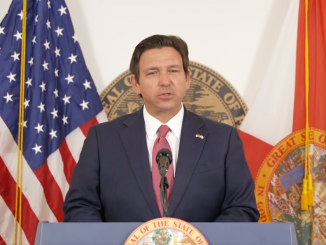
Zohran Mamdani/ Image: Video screenshot/YouTube
| Published June 27, 2025
📺 CNN’s Viral Video Moment
During a live CNN “Erin Burnett OutFront” appearance, Mamdani was unexpectedly confronted with a 2019 rap video under his alter ego “Mr. Cardamom.” The clip resurfaced just as he outlined his mayoral platform, prompting an awkward on-air pivot. The song’s lyrics referencing the “Holy Land Five” raised questions about his political judgment. Even rapper 50 Cent weighed in—jokingly offering $258,000 for him to quit the race.
🌍 International-Ripple Effects
His critique of Indian Prime Minister Narendra Modi—branding him a “war criminal” over the 2002 Gujarat riots—has ignited a firestorm in India. Some praised his honesty; others condemned what they deem “Hinduphobia” and selective historical narratives.
🏛️ Rising Star of the Democratic Socialist Wave
At just 33, Mamdani shattered expectations by defeating Andrew Cuomo and clinching the Democratic mayoral nomination. His platform—housing, free transit, city-owned grocery stores—echoes the rising influence of young socialists like AOC and Bernie Sanders. Many see his success as emblematic of a generational and ideological shift in the party.
📸 Viral Videos & Social Media Strategy
Mamdani’s past protest footage (including commentary on the Babri Masjid vs. Ram Temple) and social media campaigns reflect an intentional strategy to harness digital media for outreach—especially among South Asian and progressive voters.
 Implications
Implications
🟠 Political Implications
-
Shift in Democratic Strategy: His rise signals growing influence of the Democratic Socialists of America (DSA), pushing the party further left.
Zohran Mamdani’s rise—and eventual win—highlights the growing clout of the Democratic Socialists of America (DSA) within the Democratic Party. Traditionally, the Democratic establishment focused on moderate, centrist policies to appeal to a broad base. However, Mamdani’s unapologetically far-left positions (such as city-owned grocery stores, defunding police, and support for anti-Israel rhetoric) reflect a sharp ideological shift. His success suggests that the party’s grassroots energy is increasingly coming from younger, more radical voters who prioritize identity politics, redistribution, and activist-driven governance. The DSA’s influence is now not just symbolic—it’s translating into real electoral victories, potentially pulling the broader Democratic platform further left in both rhetoric and policy.
-
Risk of Alienating Moderates: Mainstream Democrats may worry about backlash from moderate or centrist voters, especially over controversial past statements.
While Zohran Mamdani’s victory energized progressives, it also poses a strategic risk for the broader Democratic Party. Moderate and centrist voters—especially suburban swing voters—often shy away from candidates associated with radical rhetoric or controversial views, such as Mamdani’s past support for figures linked to Hamas or anti-Israel messaging. His election may be celebrated by far-left activists, but it could alienate traditional Democrats who favor pragmatic governance over ideological activism. As the party drifts further left, there’s a danger it could lose ground nationally, especially in competitive districts where voters prefer stability over confrontation.
🟣 Media Implications
-
Viral Exposure as Double-Edged Sword: While CNN’s unexpected video gave Mamdani huge exposure, it also opened him to ridicule and criticism.
CNN’s decision to air Zohran Mamdani’s 2019 rap video during a live interview gave him a burst of national attention—but not the kind most candidates want. While the viral moment introduced him to a broader audience, it also exposed his past glorification of controversial figures and opened the door for widespread ridicule. Critics slammed the lyrics as tone-deaf, anti-Israel, and sympathetic to individuals convicted of funneling money to Hamas. The exposure boosted his visibility, but it also cemented concerns about his political judgment, giving his opponents potent material to frame him as extreme and unfit for public office.
-
Power of Social Media Archives: Old videos and online behavior now shape modern candidates’ reputations as much as live debates or policies.
In today’s political landscape, a candidate’s digital footprint can carry as much weight as their live debate performance or official platform. Zohran Mamdani’s resurfaced rap video is a prime example: what was once a niche performance suddenly became a national controversy, influencing public perception more than any policy speech. Social media archives—tweets, videos, livestreams—don’t disappear; they can be revived, reframed, and weaponized by critics or supporters alike. For candidates, this means past content, even from years ago, can dominate a news cycle, shift narratives, and define candidacies. In Mamdani’s case, his own online history became both his platform and his liability.
🔵 Cultural and International Implications
-
Diaspora Politics in the Spotlight: His criticism of Indian PM Modi has drawn international attention, intensifying the intersection of American and Indian politics.
Zohran Mamdani’s harsh criticism of Indian Prime Minister Narendra Modi—calling him a “war criminal” over the 2002 Gujarat riots—has amplified tensions between American progressive politics and Indian nationalist sentiments. As the son of Ugandan-Indian immigrants, Mamdani’s voice carries symbolic weight in the South Asian diaspora, but his rhetoric has sparked backlash, especially from Indian-American voters who view his comments as divisive or anti-Hindu. This controversy highlights how U.S. local elections are increasingly entangled in global issues, with diaspora communities closely watching candidates’ foreign policy views—even in city-level races. His statements have not only made waves in New York, but have been picked up by Indian media, drawing sharp responses from politicians and commentators abroad.
-
Identity and Representation: As a South Asian Muslim socialist, Mamdani challenges traditional norms of who holds political power in NYC.
Zohran Mamdani’s election as a South Asian Muslim and open socialist marks a significant break from the traditional political mold in New York City. In a landscape historically dominated by establishment figures, Mamdani represents a new wave of candidates whose identities reflect the city’s growing diversity—not just in ethnicity or religion, but also in ideology. For some, his rise is seen as empowering: a challenge to the long-standing political elite and a win for communities often sidelined in mainstream politics. But for others, especially critics on the right, it raises concerns about radical identity politics replacing experience and unity with division and ideology-driven governance. Regardless of perspective, Mamdani’s win underscores how identity and representation have become central forces shaping urban political power.
💬 Overall Takeaway:
Zohran Mamdani’s election as New York City mayor marks a troubling shift in the city’s political direction. His past statements—glorifying the “Holy Land Five” and defending pro-Hamas rhetoric in his rap—are not just youthful missteps but reveal a deeper ideological alignment that many find alarming. While his supporters dismiss these videos as artistic expression, critics argue they expose a candidate willing to normalize extremism under the banner of activism. For a city once defined by resilience against terrorism, Mamdani’s victory raises serious questions about where the line between protest and praise for dangerous ideologies is being drawn—and whether New Yorkers fully understood what they voted for.





Be the first to comment